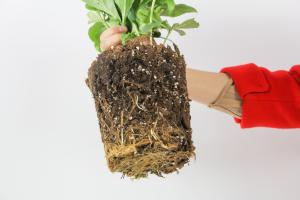Does Tap Water Make Plants Grow Faster?
It is a common belief that tap water is not good for plants and that using purified or distilled water is the best choice. However, this belief is not entirely accurate. In fact, tap water can provide the necessary nutrients for plant growth and can even help plants grow faster if used correctly.
The Benefits of Using Tap Water for Plants
Tap water contains essential minerals that are beneficial for plant growth such as calcium, magnesium, and potassium. These minerals are needed for photosynthesis and plant development. Additionally, tap water usually contains a small amount of chlorine, which can help eliminate harmful bacteria and fungi that can affect plant growth. Moreover, using tap water is more sustainable and cost-effective than using bottled water or water filters.
Potential Drawbacks of Using Tap Water for Plants
Some tap water sources may contain high levels of minerals, which can lead to salt build-up in the soil and damage to the plant roots. This is particularly true for areas with hard water, which is water that contains a high concentration of dissolved minerals such as calcium and magnesium. Furthermore, tap water may contain contaminants such as lead, mercury, and pesticides that can be harmful to plants and humans alike. It is recommended to test tap water for these contaminants and treat it accordingly before using it for plants.
How to Use Tap Water Effectively for Plant Growth
If you want to use tap water for plant growth, there are a few things to keep in mind. First, test your tap water for its pH level and mineral content. If your tap water has high levels of minerals or a pH that is too high or low, consider treating it with a water conditioner or mixing it with distilled water. Second, water your plants deeply but infrequently to prevent salt build-up in the soil. This means adding a large amount of water at once rather than small amounts over time. Finally, avoid using tap water that has been stored in metal containers or exposed to sunlight for long periods, as this can cause harmful chemicals to leach into the water.
The Bottom Line
In conclusion, tap water can be a valuable resource for plant growth if used correctly. It contains essential minerals and can eliminate harmful bacteria and fungi, making it a cost-effective and sustainable choice. However, it is important to be aware of the potential drawbacks of using tap water, such as high mineral content and contaminants. By testing and treating tap water accordingly, and following proper watering techniques, your plants can benefit from the nutrient-rich water that flows from your tap.

 how many times do yo...
how many times do yo... how many planted tre...
how many planted tre... how many pine trees ...
how many pine trees ... how many pecan trees...
how many pecan trees... how many plants comp...
how many plants comp... how many plants can ...
how many plants can ... how many plants and ...
how many plants and ... how many pepper plan...
how many pepper plan...































